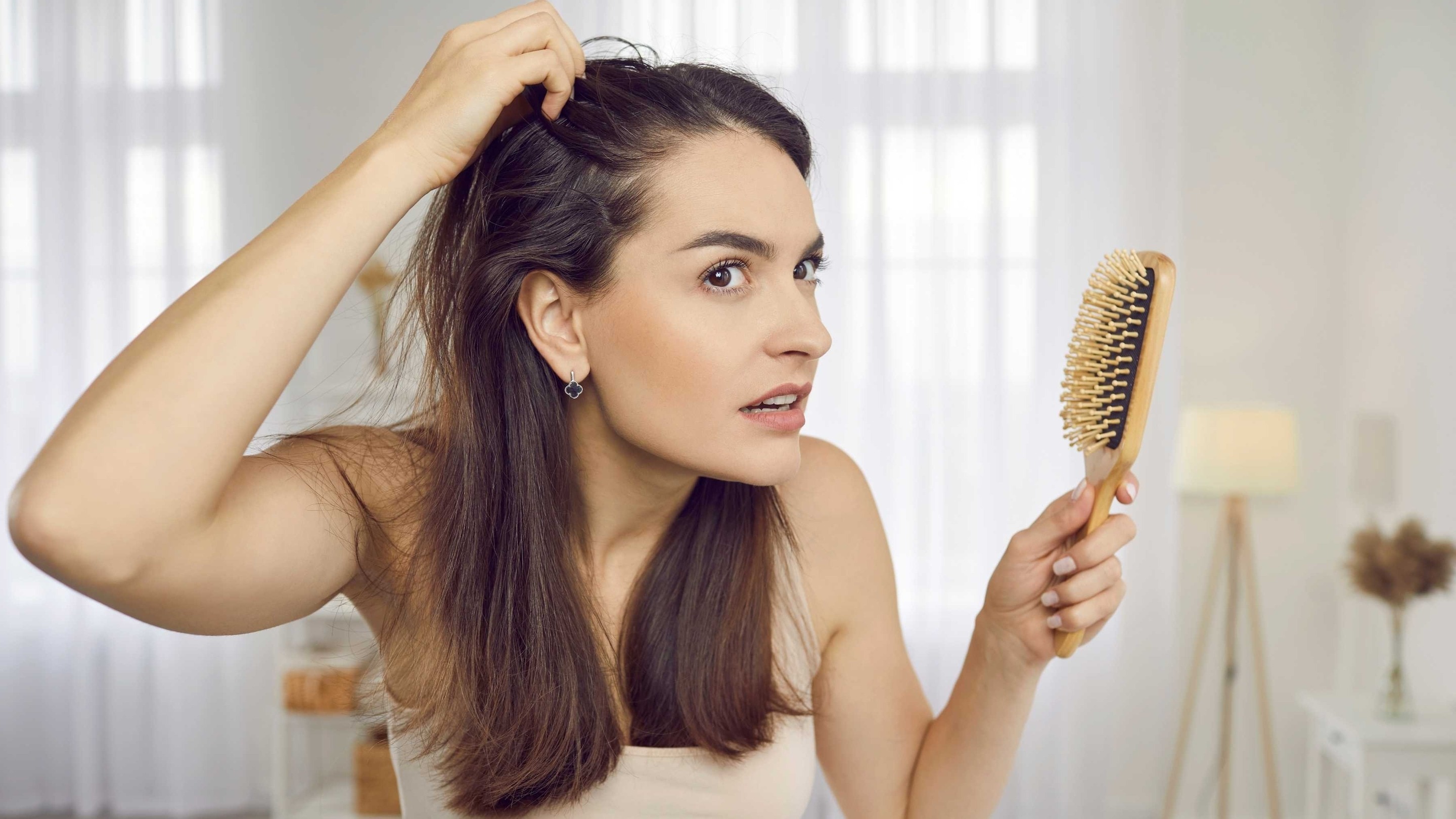- 01 What Are the Top Causes of Hair Fall?
- 02 How to Stop Hair Fall : Effective Treatments That Work
- 03 Home Remedies for Hair Fall
- 04 Eat Your Way to Healthier Hair with a Healthy Diet for Hair Fall
- 05 Holistic Hair Fall Control: Lifestyle & Stress Management
- 06 How to Prevent Hair Fall Before It Starts
- 07 When to See a Dermatologist ?
- 08 Final Thoughts: How to Stop Hair Fall and Keep It That Way
- 09 FAQs
Hair fall is one of the most common hair concerns globally, with thousands of people searching for solutions every day. Queries like "how to stop hair fall" and "how to prevent hair fall" rack up over 49,000 monthly searches each—proof that this issue touches nearly everyone at some point. Whether you're noticing more hair strands in your brush or experiencing visible thinning, tackling hair fall starts with understanding its causes and implementing the right treatments and care routines.






